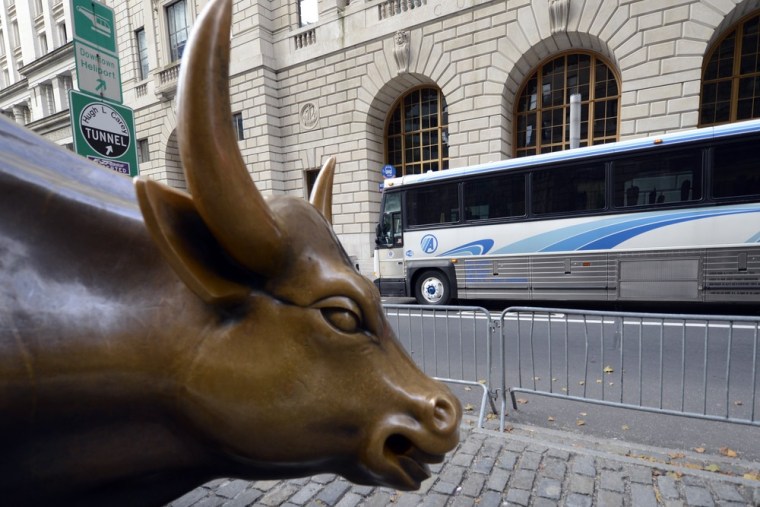Wall Street bonuses are no longer plummeting, although the “new normal” emerging now is below the industry’s pre-recession heyday.
“The revenues of these firms just aren’t good enough. There’s a pretty good alignment between pay and performance,” said Alan Johnson, managing director at consulting firm Johnson Associates Inc.
In its quarterly study of incentive-based compensation at financial firms, Johnson Associates found that the overall picture is flat to slightly better. Senior managers, for instance, are projected to earn between 5 percent less or 5 percent more in stock and cash awards this year than they did in 2011.
The report highlighted variations within this overall assessment. Improved performance in areas like fixed-income trading and asset management were offset by a drop in banks’ equities businesses.
"This year has been a difficult year for Wall Street,” said David Treussard, executive vice president and global financial services practice group leader at executive search firm DHR International. “The economy never really grows during an election year,” he said, while worry about the "fiscal cliff" and other uncertainties acted as a brake on investment and dealmaking.
“Nothing’s been great. Everyone was expecting more M&A activity... we haven’t seen it,” Treussard said. “I think every manager in banking right now is getting ready to have pretty tough conversations with their people, because it’s not going to be a great year.”
Financial firms were responding to lower demand from the still-weak economies in the U.S. and Europe by cutting operational costs and reducing headcounts, Johnson said. “Firms have finally come to the realization that they need to be smaller.”
The one bright spot was banks’ fixed-income divisions. The report predicted that bonuses in this sector will grow 10 to 20 percent this year, the highest of any segment studied.
“Now, fixed income is a pretty robust business because it’s not a very risky business,” Treussard said. “Equities, it’s a different story. You have much higher risk, much higher volatility in the market.”
In the face of a regulatory push to reduce risk, Johnson said businesses that will be favored going forward are the ones, like asset management, that aren’t capital-intensive. “Smaller, private asset management firms [are] projected to increase incentives by a larger amount as leaner staffing/cost structures provide greater ability to capitalize on improving results,” the report said.
The industry also is still contending with the hangover of last year’s Occupy Wall Street protests and scandals ranging from LIBOR-rigging to foreclosure robo-signing. “Public and regulatory scrutiny on compensation will continue for foreseeable future,” the report predicted. It noted a “continued drum beat that financial services pay is outsized.”
